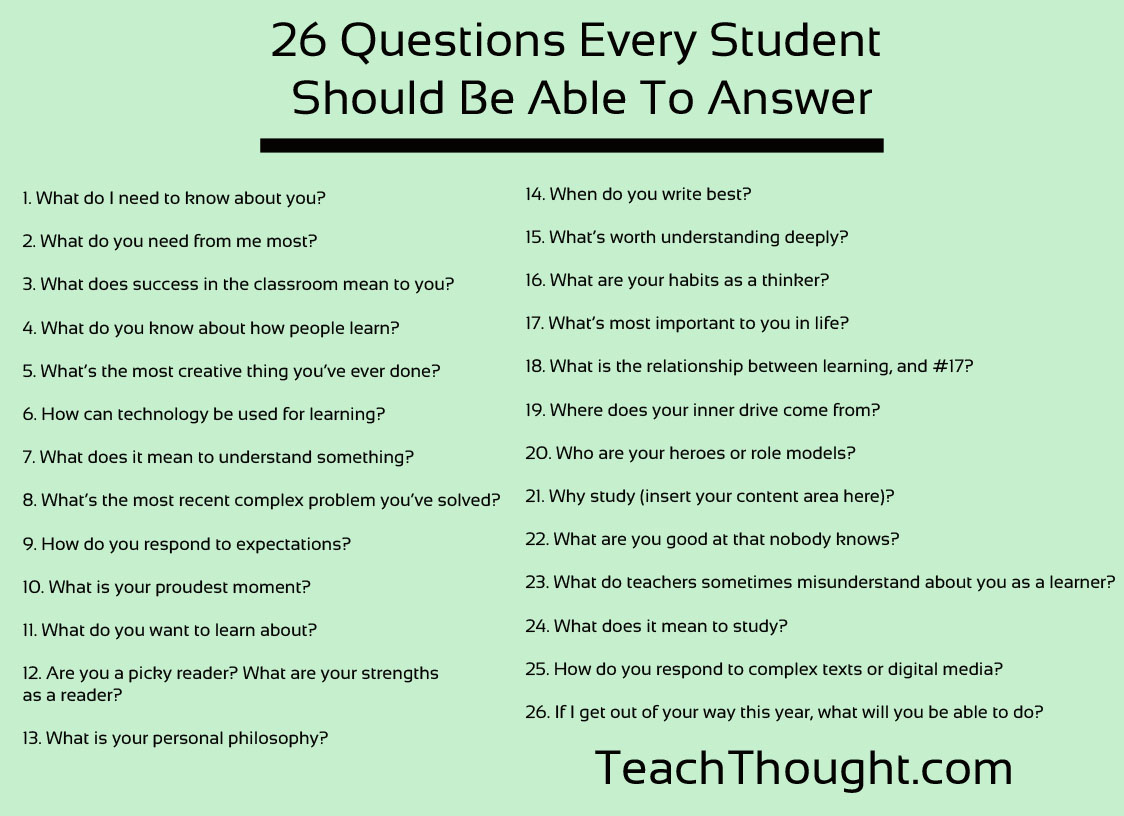Questions To Ask Of A Graduate Program
Career Services - Students Questions You Can Ask There are two reasons to ask good questions. First, you should ask many questions during your graduate admissions interview so that you can gather the information that you need to determine if this is the right program for you. Remember that you are interviewing the graduate program - you must choose the program that is right for you. Second, of course, good questions impress admissions committees. DO YOUR RESEARCH TO DEVELOP GOOD QUESTIONS. Ask away-if applicable: What do you consider the greatest strength of this program? Of this profession?
What makes a student successful in your program? What future changes do you see in this profession? This is what I know about your program.can you tell me more? Where do graduates of your program typically work?


Where are recent alumni employed? What do most students do after graduation? What types of financial aid are offered? What criteria are used for choosing recipients? Are there any scholarships or fellowships available? How do I apply? Are there teaching opportunities, such as teaching assistantships and adjunct positions?
Prior to your meeting, it’s important to conduct some research and compose a list of questions you have about the program. The following sections offer guidance for preparing for your meeting. Prior to meeting with a graduate school director, advisor, or staff member, learn as much as possible about the program by visiting its website.
Do most students publish an article or present a paper before graduation? What planned practical experiences are included in the program (e.g., internships)? Ask for examples of internship placements. What is the relative importance of admissions test scores, undergraduate grades, recommendations, statements on applications, experience, and other requirements?
Does the department prefer applicants immediately out of undergraduate programs or do they prefer applicants with work experience? If they prefer or require experience, what kind of experience are they looking for?
How are mentoring and advising relationships established? Are advisors assigned? How long do most students take to graduate?
How many years of course work? How long do most students take to complete their thesis/dissertations? Do most students live near campus? What is it like to live in this area as a graduate student (ask to other students) Curriculum: ● Describe this school's curriculum in the pre-clinical and clinical years. Are there any innovations, like Problem-Based Learning?
● Are there opportunities for students to design, conduct, and publish their own research? Zoids Translation Patch here. ● Is there flexibility in the coursework (the number of electives) and the timing of the courses (accelerating, decelerating). Counseling / Student Support: ● What kind of academic, personal, financial and career counseling is available to students?
● Is there a mentor / advisor system? Who are the advisors - faculty members, staff, other students? ● How diverse is the student body? Facilities: ● Tell me about the library and extracurricular facilities (i.e.
Housing and athletic / recreational facilities) ● Are computer facilities integrated into the curriculum / learning? ● What types of clinical or internship sites are available or required for students? ● Is a car necessary for clinical rotations?
Is parking a problem? Financial Aid: ● Are there stable levels of federal financial aid and substantial amounts of university endowment aid available to students? Student Involvement: ● What committees have student representation? ● Are students involved in (required or voluntary) community service? ● What types of student organizations are there? Dream It ▪ Try It ▪ Become It.
Comments are closed.